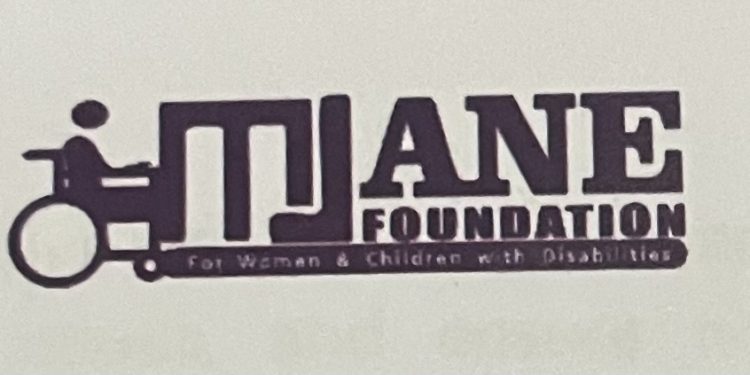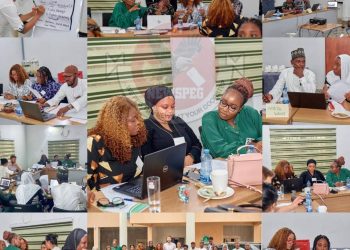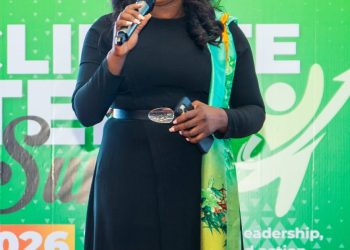By Nkechi Eze
A coalition of advocacy groups led by the MimiJane Foundation for Women and Children with Disabilities has issued a powerful call to the Nigerian government and development partners to fulfill the country’s pledges made at the 2020 Global Disability Summit (GDS) held in Berlin, Germany. The demand was made during a press conference held in Abuja, which brought together leading voices in the person’s with disability community to amplify the urgency of action, particularly on issues affecting women and girls with disabilities.
The press event, themed around accountability, inclusion, and action, underscored growing concerns that, despite Nigeria’s over 30 commitments under the Amman-Berlin Declaration, actual implementation remains slow and inadequate especially in critical areas such as education, healthcare, economic empowerment, and access to reliable, disaggregated data.
Delivering the opening remarks, Ambassador Mube Awala Beatrice, Executive Director of the MimiJane Foundation, reaffirmed the organisation’s commitment to promoting the rights of women and girls with disabilities. She emphasized that the press conference was not just symbolic, but a direct engagement with government actors, development institutions, and civil society to reignite momentum behind Nigeria’s disability agenda.
“Today, we gather not to revisit promises, but to demand the realisation of those promises,” Ambassador Beatrice stated firmly. “Nigeria committed to more than 30 action points under the Amman-Berlin Declaration during the 2020 Global Disability Summit. Yet, for too many women and girls with disabilities, those commitments remain words on paper unfelt, unseen, and unfulfilled.”
Ambassador Beatrice outlined that the Post-GDS Accountability Project being implemented by the Foundation focuses on tracking progress in four thematic areas: inclusive education, sexual and reproductive health and rights (SRHR), economic empowerment, and access to disaggregated data. She announced the launch of a new digital platform www.postgds.org which will serve as Nigeria’s first-ever public-facing tool to track progress on GDS-related commitments.
“This platform will be a central hub for real-time updates, public accountability, and citizen engagement. It will be used to document what has been done, what remains pending, and what the priorities should be moving forward,” she said.
Also speaking at the event, Comfort Ekwo of the Alliance for Disability Justice stressed the urgent need for inclusive systems that reflect the lived realities of women and girls with disabilities. She decried the ongoing exclusion of children with disabilities from mainstream schools due to inaccessible infrastructure and widespread societal stigma.
“Inclusive education is not about special schools in far-flung areas,” Ekwo asserted. “It means that every child, regardless of ability, can attend neighborhood schools and learn in an environment that is safe, respectful, and supportive. It is unacceptable that in 2025, girls with disabilities are still being denied their right to learn because ramps were not built or sign language was not provided.”
In a similar vein, Mercy Jorkyundan, Head of Program and Advocacy at the Hope Alive for Possibilities Initiative, called attention to the chronic economic marginalization faced by women with disabilities, especially in rural and underserved regions. She explained that existing empowerment programs often fail to reach their intended beneficiaries due to poor targeting, infrastructural gaps, and deep-seated discriminatory attitudes.
“For economic empowerment to be effective, it must be intentional. Programs should be designed with our unique realities in mind, our mobility needs, our geographic isolation, and our socio-economic vulnerabilities,” Jorkyundan stated. “Women with disabilities do not want charity. We want access. We want equity. We want to work, to earn, and to live with dignity.”
Mary Jane, a representative of the Family Center Initiative for Challenged Persons, addressed the data crisis surrounding persons with disabilities, particularly women and girls. She emphasized the urgent need for the Nigerian government to invest in comprehensive data collection that can inform planning, resource allocation, and monitoring of disability-inclusive policies.
“We cannot plan for what we do not count. Women with disabilities are largely invisible in national surveys, and that invisibility translates into exclusion from social investment programs, health budgets, and policy frameworks,” she said. “The time to integrate disability-disaggregated data into every aspect of national planning is now. We can no longer afford to operate blind.”
In addition to the strong policy messages, the event also highlighted the results of a nationwide multimedia awareness campaign spearheaded by the MimiJane Foundation. The campaign, which featured real-life stories of women and girls with disabilities, reached more than 50,000 people through traditional and digital media platforms. Organisers said the campaign was aimed at reshaping public perceptions, reducing stigma, and prompting political will for disability reforms.
“Our stories are powerful tools for change,” said one campaign participant. “They bring our experiences out of the shadows and into the center of national discourse where they belong.”
The press conference concluded with a resounding call to action for policymakers, civil servants, and international development agencies to step up and deliver on the promises made in 2020. Participants demanded that disability inclusion be fully mainstreamed into Nigeria’s national development agenda, and that women and girls with disabilities be given the visibility, resources, and dignity they deserve.
“Inclusion is not optional,” Ambassador Beatrice concluded. “It is a human right, and it is the litmus test of our democracy and our development. The world is watching, and we will continue to speak until the commitments made are the realities we live.”
The event marked a critical moment in Nigeria’s post-GDS accountability journey, as the persons with disability community, particularly its female voices, made clear that the time for rhetoric is over. The focus, they insist, must now be on results.
















